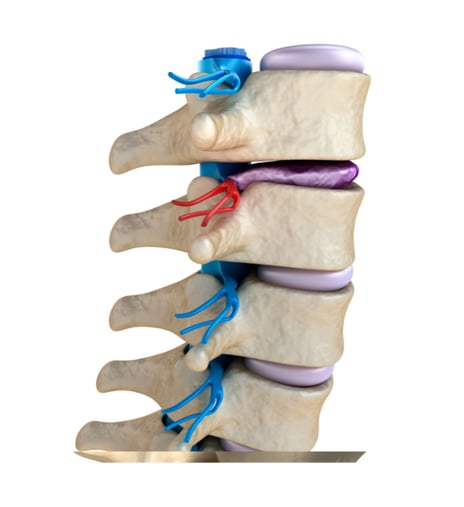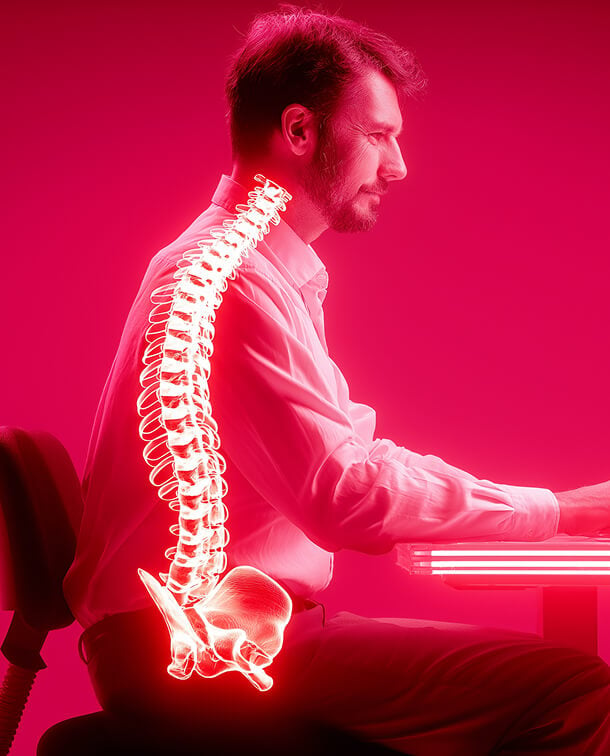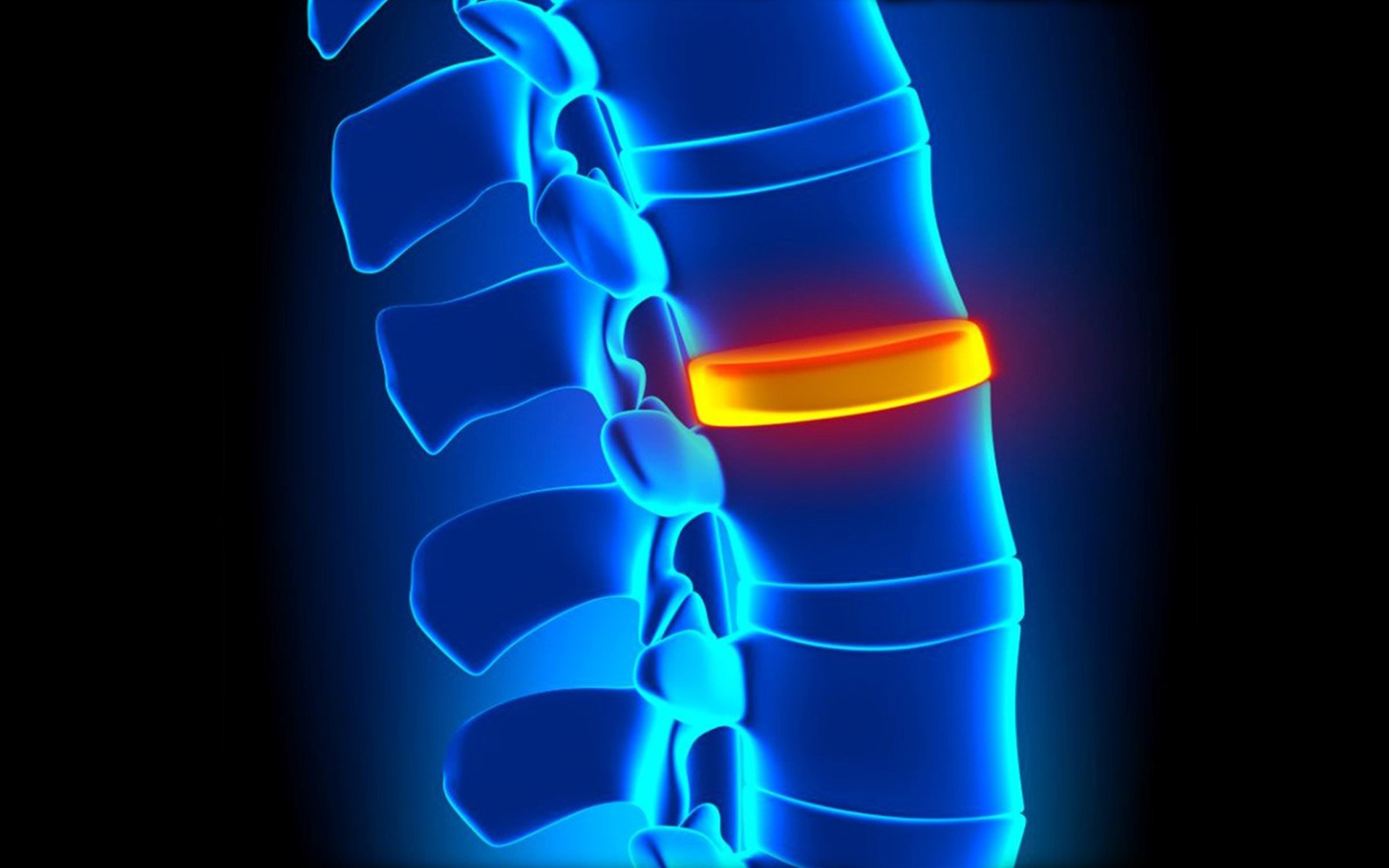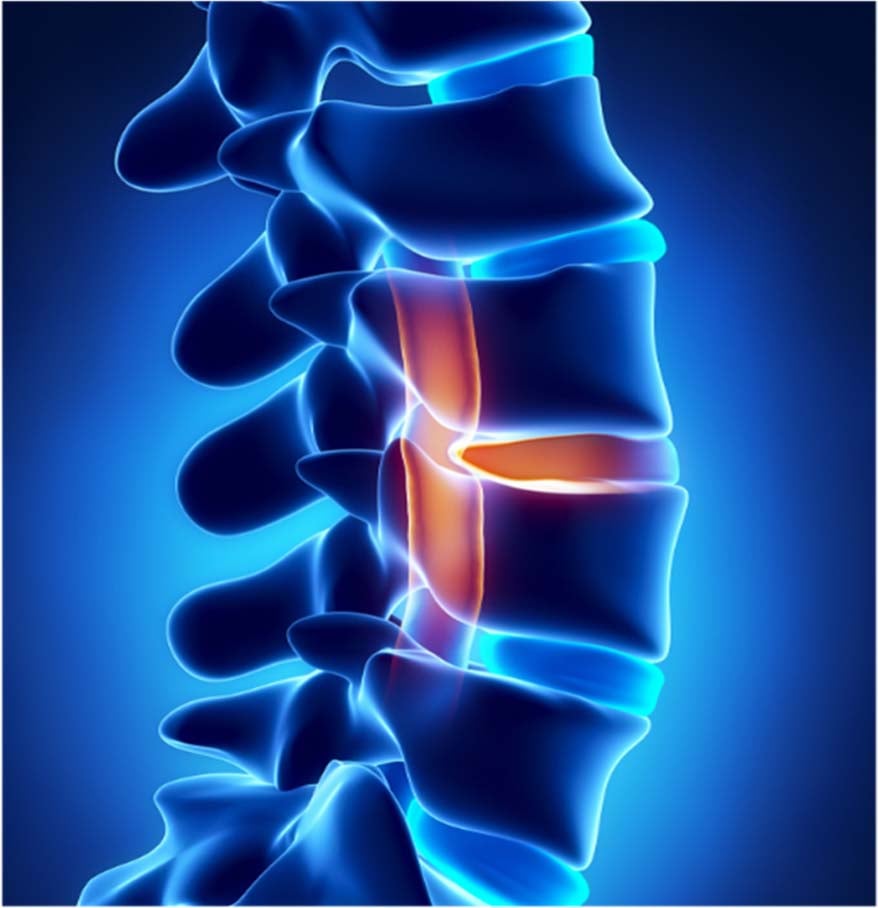Today we’re going to take a closer look at the role poor posture plays in the distressing condition known as degenerative disc disease. The impact of poor posture goes far beyond aesthetics. The sobering truth is that there’s a clear link between your posture and the complex, well-being of your spine.
The Basics of Degenerative Disc Disease (DDD)
Before we look into the link between poor posture and degenerative disc disease, let's clarify what DDD is and why so many suffer from this painfully debilitating condition. Contrary to its name, degenerative disc disease is not actually a "disease" in the traditional sense. It's a condition that describes the slow and progressive deterioration of the discs in your spine.
To put it in layman’s terms, the discs in our spine are supposed to act as shock absorbers between each of our vertebrae. Without the cushioning effect of these “shock absorbers”, the spine is unable to flex and absorb the everyday stresses of life. For some, this deterioration can result in a chronic dull backache, and for others, the result is episodes of sharp, shooting pain and excruciating discomfort. Your spine is simply not working the way it was designed to function.
What can we do?
As we age, the cushioning discs of your spine can naturally wear down, due to the normal process of aging. Over time, these discs thin out, losing both water content and height.
However, it is widely known that poor posture can definitely speed up this process!
Imagine your spine as a well-balanced stack of blocks and that your discs are cushions between them. When we have poor posture, the balance of these cushions is disrupted. This places uneven stress on these blocks. However, when you maintain proper posture, the spine's load is evenly distributed across these discs, minimizing wear and tear.

Here's how poor posture can contribute to DDD:
Too Much Pressure: Slouching or hunching forward put a great deal of pressure on the front of your spinal discs. This can cause them to compress unevenly. Over time, this leads to degeneration.
Not Enough Flow: The spine has a natural ability to repair itself. Good posture ensures that your spinal discs receive essential nutrients through a process called imbibition. Poor posture restricts the imbibition process and hurts the discs' ability to repair themselves.
Lack of muscle symmetry: Consistent poor posture can weaken the muscles supporting and surrounding your spine. These muscles play a vital role in maintaining spinal alignment, reducing stress on the discs. When these muscles are out of balance, they place excessive stress on the discs.
Natural Movement Impaired: Poor posture often leads to a decrease in the body’s natural range of motion. This can make your spinal problems even worse because stiffness and inflexibility can worsen disc degeneration.
Preventing DDD through Better Posture – The Key
The good news is that you can take proactive steps to prevent (or at least lessen) the damaging effects of DDD. Your posture takes a starring role in this effort.
Quality Seating: Invest in high-quality ergonomic office chairs. Do your homework. There are plenty of them out there. The best chair will support your spine at the pelvis, supporting your spine's natural curve. This will organically encourage proper posture.
Thoughtful Sitting: Be mindful of how you sit. Do your best to sit all the way back in your chair, with your feet flat on the floor. Ensure your computer screen is at eye level to reduce the temptation to hunch over.
Consistent Movement: Take breaks! When you sit for too long, poor posture will inevitably creep in. Take short breaks to stretch and walk around. This helps take some pressure off your spinal discs.
Strong Core: Make a routine of doing exercises that strengthen your core muscles. A strong core helps support your spine and maintain good posture.
While poor posture alone is not the only cause of degenerative disc disease, it certainly contributes to its development and can make it worse. By being aware of your posture and your sitting habits, you can protect the well-being of your spine and reduce the risk of experiencing the discomfort of DDD.
you are looking to improve posture and decrease pain while sitting, look no further than Anthros.
Anthros is the only chair in the world that is guaranteed to improve posture or your money back. The science-backed, patented design is registered with the FDA as a posture-improving chair and is proven to have the lowest pressure (most comfortable) cushion on the planet (verified by university testing).
Take the next step to reducing pain, increasing comfort, and maximizing performance!
Recent Post

Pelvic floor Dysfunction and constipation relief
June 6, 2025Adding a cushion to your office or gaming chair...

Stretches for pelvic floor dysfunction
June 4, 2025Adding a cushion to your office or gaming chair...









